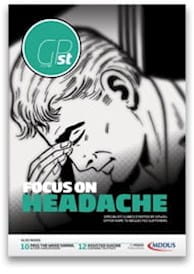AS a trainee GP, one of the trickiest judgements to make is deciding when it is appropriate to refer a patient to secondary care.
Is a ready willingness to refer indicative of a sensible, cautious approach or a sign of poor practice? Add to that the nagging concern in the back of your mind about the need to cut costs, not to mention the fear of wasting the time of secondary care teams, and it can be difficult to know how to proceed.
Recent figures from NHS England show that referrals made by GPs to secondary care increased by 4.5 per cent in April and May 2013 compared to the same period last year. Such increases put considerable pressure on commissioning budgets as well as on providers.
It is not surprising therefore that some clinical commissioning groups (CCGs, formerly primary care trusts) have tasked GP practices with analysing referrals to identify the reasons for any increase in those made to secondary care. The incentives attached to such schemes have attracted considerable attention due to concerns that they may, inadvertently, influence a doctor’s decision to refer.
Often the assumption is that increases in referral rates are caused directly and solely by GPs changing their behaviour. However, in reality there are a wide variety of factors capable of influencing referral rates.
These include:
• Those arising from systems adopted by hospitals in response to national policies such as the 18 weeks from referral to treatment target in Scotland
• Changing trends within primary care, such as the rise in the number of multi-disciplinary consultations and GP consultation rates overall
• The GP’s own values, skills and experiences. Some of my colleagues worry that their increasing numbers of referrals may somehow reflect practice inefficiency or a lack of sound diagnostic judgement.
On reflection of my time as a GP trainee I always worried about possibly wasting a consultant’s time by referring needlessly. This was not necessarily the case – and in any event would be difficult to prove one way or the other in the absence of a suitable baseline or even a consensus on what constitutes “appropriate” referrals.
One means by which I judge whether or not a referral is appropriate is to look at long-term clinical outcomes following referral. This is a good way of engaging in reflective learning, taking into account what happened and what other treatment options may have been available to you had you not referred. This can be added to your eportfolio along with specified learning needs and objectives. This is also something that will form part of the appraisal process once you complete GP training.
A 2010 report by the King’s Fund, The quality of GP diagnosis and referral, looked at study findings on the reasons behind GP referrals. Three kinds of referral were described:
• Appropriate referrals - in which the focus is wholly on patient benefit
• Load-sharing referrals - in which the intention is to share responsibility with other professionals as part of a planned management strategy that is hoped to be of some benefit to the patient
• Dumping referrals - in which the primary aim is to relieve pressure on the GP, with little expectation of patient benefit.
The report detailed a number of characteristics of a “high quality referral”. These included:
• Necessity – are the patients referred as and when necessary?
• Timeliness – is this done without delay?
• Destination – are patients referred to the most appropriate destination first time?
• Process – is the process of referral a high quality one? This means referral letters should contain all the necessary information; the patient should be helped to choose a suitable time and location; and the GP, patient and specialist should have a shared understanding of the purpose/expectations of the referral. Pre-referral management should also be adequate, with specialists stressing the importance of “working up” the patient in primary care.
As a trainee, when I was unsure about whether to refer, or indeed which specialty to refer to (i.e. should it be dermatology or plastic surgery?) I found it helped to liaise with my GP tutor. By looking at the wider picture of the clinical scenario these discussions can also be used as a case-based scenario as required for eportfolio.
In England and Wales other resources that are available if you seek information on what or where to refer include the NICE referral advice guidance while in Scotland www.18weeks.scot.nhs.uk has information on various referral management pathways. In conclusion, I would say there are no clear-cut rules about when it is appropriate to refer but you should always trust your instinct and if in doubt ask your GP tutor or another senior colleague. They are a mine of information.
Dr Peter Livingstone is a GP and editor of GPST
This page was correct at the time of publication. Any guidance is intended as general guidance for members only. If you are a member and need specific advice relating to your own circumstances, please contact one of our advisers.
Read more from this issue of Insight Primary

Save this article
Save this article to a list of favourite articles which members can access in their account.
Save to library
